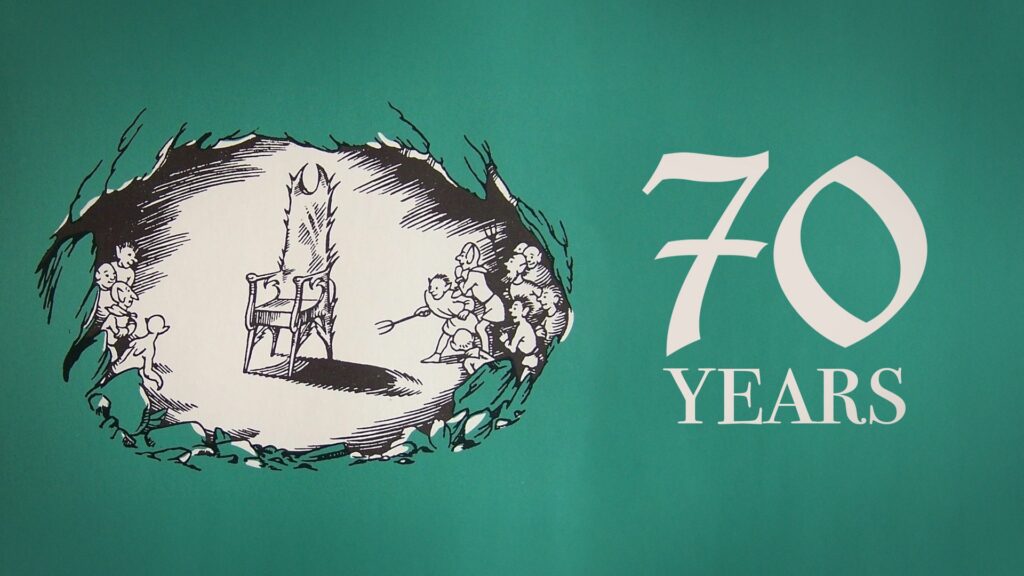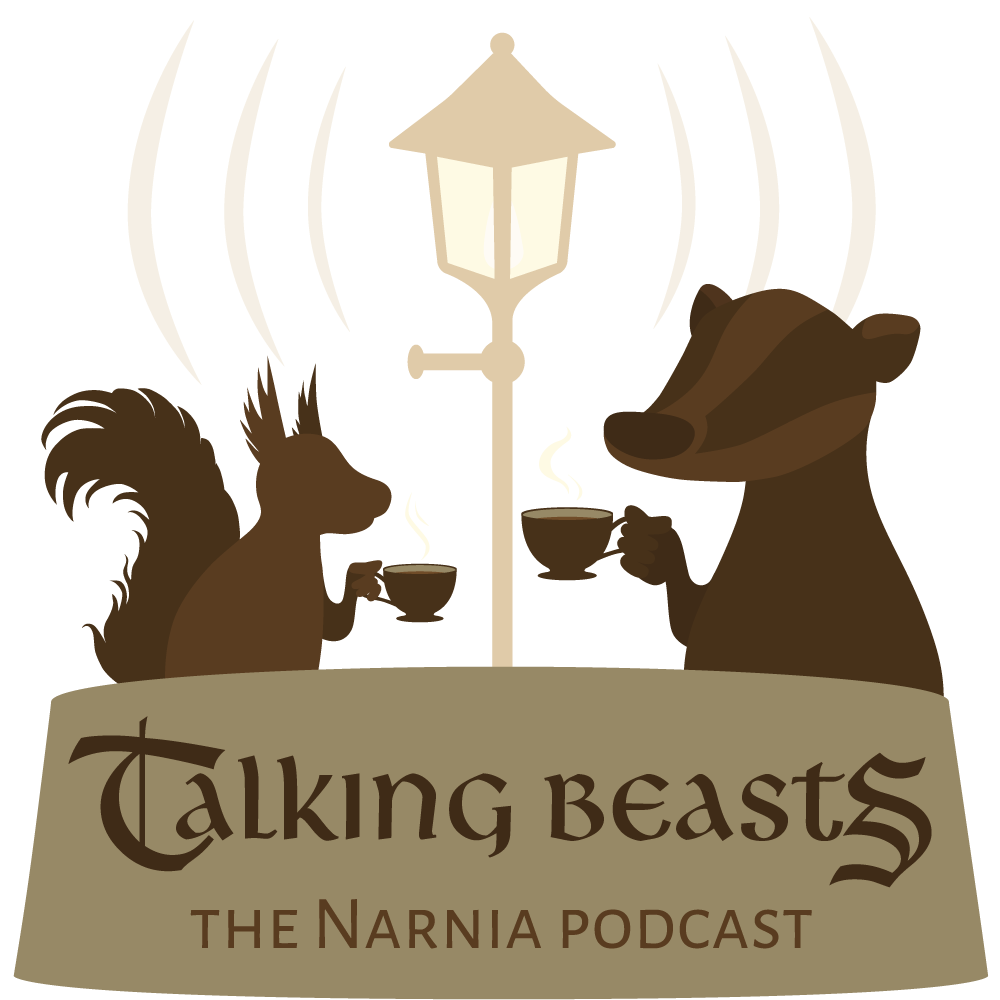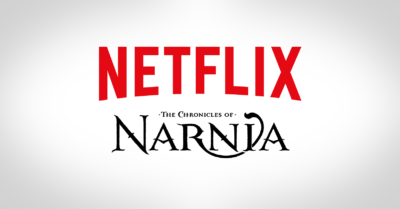The Silver Chair 70th Anniversary

The Silver Chair by C.S. Lewis was published on this day in 1953!
“These are the signs by which I will guide you in your quest. First; as soon as the Boy Eustace sets foot in Narnia, he will meet an old and dear friend. He must greet that friend at once; if he does, you will both have good help. Second; you must journey out of Narnia to the north till you come to the ruined city of the ancient giants. Third; you shall find a writing on a stone in that ruined city, and you must do what the writing tells you. Fourth; you will know the lost prince (if you find him) by this, that he will be the first person you have met in your travels who will ask you to do something in my name, in the name of Aslan.”
Here are some random fun facts about the book:
- The Silver Chair was the 4th book in The Chronicles of Narnia to be published. It is #6, chronologically.
- The original title was The Wild Wastelands.
- The book is dedicated to Nicholas Hardie, son of Colin Hardie (an Inklings member).
- The character Puddleglum was inspired by Lewis’s gardener, Fred Paxford.
- The title of Chapter 4, “A Parliament of Owls,” is a playful reference to Chaucer’s poem, “Parliament of Fowls.”
- Lewis published The Abolition of Man that same year.
- A film adaptation directed by Joe Johnston was in development in 2017, but ultimately did not go into production.
In the comments section below, tell us what you love about this story, and share your favorite scenes, quotes, and characters!






I can’t believe Fred Paxford has his own Wikipedia page!
Good timing! I just started re-reading The Silver Chair. I really like the gloominess of this book. Don’t get me wrong, I love the usual brightness and joy of Narnia, but it’s a nice change of pace.
This isn’t my favourite part of the book, but I’ve always loved the way the owls tell the tale of Prince Rilian. It’s one of those parts of Narnia (the adult Pevensies at the end of LWW is another) that feels straight out of the Middle Ages. Narnia was the gateway to a lot of things for me, and one of those things was medieval literature, and chivalric romances in particular.
My favourite part is Puddleglum’s speech (probably no surprise there 😉 ).
Happy Anniversary to the Silver Chair! What great timing that your commentaries on BBC’s Silver Chair happened earlier this year. Was that planned…?
I really like the descriptions of Aslan’s Country in the book. This is sadly lost in BBC’s adaptation. In the book it is a beautiful, bountiful, colourful, pure place. I hope this is done with taste in the future film adaptation (whenever that may be!) because it could easily be done with colourful shiny cgi, when I think a more conservative, natural and meek portrayal of his Land would be very good. As in, make it less cartoony and more grand/natural.
I like the scene where Caspian says to Drinian, “”I have lost my bride and my son. Should I lose my best friend too?” (I’m paraphrasing.)
I like the various episodes, including seeing Father Time. I love the Aha! moment of “Under me” and realising they were IN IT!
Congratulations to a classic that feels like it is 140 years old, not just 70 🙂
I have many favourite quotes and sections, including everything to do with the signs, the bravery of the marshwiggle, and the character development of the children. I love Jill’s conversation with Aslan, where she admits, “I was showing off, sir.” There is so much honesty amidst the lies and deceit of the other characters.
The ‘fun fact’ about ‘A Parliament of Owls’ surprises me, as it is the usual collective noun for owls.
Didn’t know about the reference to Chaucer. I thought it was just a play on the fact that a group of owls is called a parliament!
TSC stands among my favorite books of all times. The failures, grace, and courage demonstrated guided me among some of the darkest days of my life. As I move forward, Prince Rilian said it best, “Whether we live or die, Asian will be our good Lord.”
It’s crazy to think that it was that long ago since The Silver Chair was published. The only adaptations that has been done so far are radio dramas and the BBC TV series. It will be interesting on what Netflix or whatever studio company will do with The Silver Chair.
The Silver Chair remains one of my favorites of the Narnia books because of Puddleglum, who was such a memorable character. I also liked the journey taken by Puddleglum, Jill, and Eustace and the realism of the places where they visit. It is almost as compelling as the sea voyage in The Voyage of the Dawn Treader. I hope that the story is at some time made into a new film or television series, although I liked the BBC version with Tom Baker very much. The book is one of Lewis’ best. 🙂
One aspect of The Silver Chair that I really like is its portrayal of Christ, in the character of Aslan. Some people think that the God of the Bible is an ogre, who takes joy in punishing people for the slightest infraction of His rules. A closer look at the Scriptures shows that nothing could be further from the truth. Like it says in John 3:17, “For God did not send his Son into the world to condemn the world, but to save the world through him.” (NIV) In Aslan, C.S. Lewis has captured the essence of God as He truly is; forever patient with His flawed, rebellious creatures, giving them every opportunity to do what is right. Yes, there are consequences when they do wrong, but Aslan takes no delight in punishing them. He is a loving father, who takes delight in His children and wants to see them succeed. God is not a “sky bully” who wants to torture us. He loves us, and He wants to have a relationship with us, if we are willing to accept Him.
“A Parliament of Owls” in The Silver Chair is one of my favorite Narnia chapter TITLES, right after “Deep Magic from the Dawn of Time” and “Deeper Magic from Before the Dawn of Time”.
Also, the actual chapter “The Queen of the Underland” [with Puddleglum’s speech] may be my favorite chapter in all of the Narnia books!
My wife likes to call me “Puddleglum”. Sometimes she means that as a compliment and sometimes as an insult. (I take it as a compliment every time.)
I have always had a problem with TSC. When Aslan gives Jill the signs he says that the first person to ask anything in his name will be Prince Rilian. He does not say that she must obey that person. But when the Prince asks to be let free in Aslan’s name they talk as though the choice was to obey or not to obey. Puddleglum says “He only told her what to do.” But he didn’t. If they know, because of the signs, that he is the Prince then why are they afraid of him? If they don’t know, and they seem not to know, they have not understood the signs.
Any thoughts?